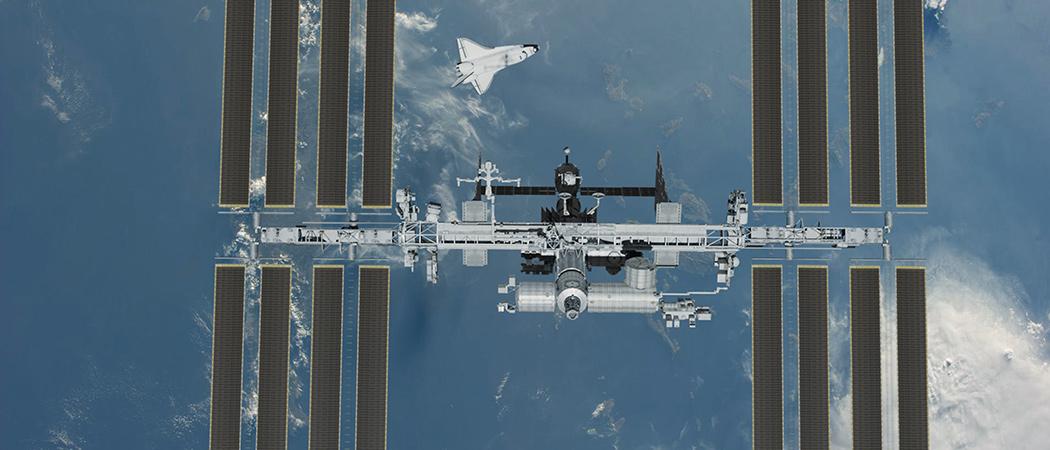Despite provocative comments from the head of the Russian space agency, no steps have been taken and NASA says cooperation continues as normal

International space station. Photo: NASA
Dmitry Rogozin, head of the Russian space agency Roscosmos, spent Saturday morning threatening US, Canada and the EU that he will pull his country out of the International Space Station (ISS) if the west does not lift its sanctions on Russia.
“I believe that the restoration of normal relations between partners in the International Space Station and other joint projects is possible only with the complete and unconditional lifting of illegal sanctions,” Rogozin said on Twitter. The remarks were made despite him receiving letters from US, Canada and European space chiefs assuring him the sanctions will have no impact on the ISS.
Rogozin said his proposals on the “on the timing of the completion of cooperation within the ISS” would be submitted to the Russian government “in the near future.”
Despite the harsh comments, the US, which together with Russia holds the biggest stake in the ISS, seems to not take the threats to heart, and cooperation continues.
Bill Nelson, head of NASA, downplayed Rogozin’s threat saying, “NASA is aware of recent comments regarding the ISS. US sanctions and export control measures continue to allow US-Russia civil space cooperation on the space station. The professional relationship between our international partners, astronauts and cosmonauts continues for the safety and mission of all on board the ISS.”
Politicians in the US are also taking a cautious approach. The office of Don Beyer, chair of the space and aeronautics subcommittee in the House of Representatives, did not want to comment on Rogozin’s threats, saying they are not substantiated by any actions.
The ISS is a joint US, Russia, Japan, EU and Canada space station in low earth orbit used to conduct research in fields such as astrobiology, astronomy, meteorology and physics. It was launched in 1998, with the first long-term personnel arriving in 2000.
Before the war, Roscosmos planned to continue to take part in the ISS until at least 2025.
Thus far, cooperation over the ISS has not been affected by sanctions imposed on Russia by the US, which mostly target military technologies, oligarchs and energy trade.
However, in mid-March, Rogozin asked the chiefs of US, EU and Canada’s space agencies whether the sanctions will affect the ISS. In response, the heads of NASA and the Canadian Space Agency assured Rogozin in separate letters they are doing their utmost to sustain cooperation. The European Space Agency’s (ESA) chief Josef Aschbacher did not directly answer the question, telling Rogozin he would forward it to the heads of EU member states. On Saturday, Rogozin published all three letters on Twitter.
US has so far shied away from imposing sanctions on Russian science, while Canada and most EU countries have suspended science ties, including some cooperation on space. The European Space Agency has halted cooperation over the ExoMars mission to Mars.
In response to the sweeping sanctions from the west, Roscosmos withdrew its personnel from Europe’s spaceport in French Guiana, making launches with Soyuz rockets impossible.
Saturday’s comments by Rogozin follow others in the past weeks in which he deplored the sanctions imposed on Russia in response to its invasion of Ukraine. Whatever is happening behind the scenes, these past comments have also been largely disregarded by his counterparts in the west.
ESA did not comment on Rogozin’s threats but said it will deliver an update on “the impact of the geopolitical situation” on its programmes following the ESA Council on 13 April, when member state ministers meet to discuss the situation.





 A unique international forum for public research organisations and companies to connect their external engagement with strategic interests around their R&D system.
A unique international forum for public research organisations and companies to connect their external engagement with strategic interests around their R&D system.